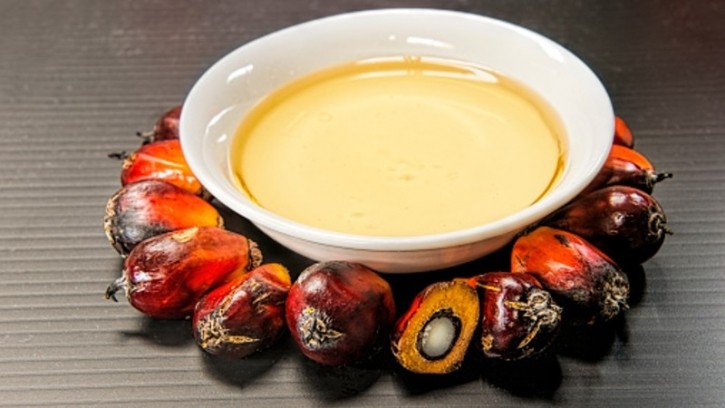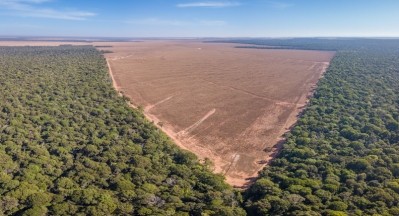Sustainability and smallholder concerns: Palm oil producing nations question EU’s deforestation ‘workstream model’

The EU Deforestation Regulation (EUDR) Ad Hoc Joint Task Force’s (JTF) has held two meetings so far, with the most recent being in February 2024 hosted by the Council of Palm Oil Producing Countries (CPOPC) in Malaysia.
This featured the launch of a dedicated workstream model to look into the various issues raised by producer countries regarding the EUDR.
A primary discussion point at the meeting was that of sustainability and traceability surrounding the five commodities set to be impacted by the EUDR – cocoa, rubber, timber, coffee and most prominently, palm oil.
The five workstreams that were laid out at the end of the meeting focused on smallholder inclusion; relevant certifications schemes especially the Indonesian Sustainable Palm Oil (ISPO) and Malaysian Sustainable Palm Oil (MSPO) certifications; traceability systems including Malaysia’s Sawit Intelligent Management System (SIMS) and Indonesia’s National Dashboard for Commodities; deforestation-related scientific data; and the protection of privacy data.
But although this has marked the beginning of what is likely to be a long-term, complicated evaluation of EUDR relations with producer markets, leaders from both Indonesia and Malaysia have already clearly outlined what is needed from the EUDR in order to ensure trade remains viable for both sides.
“Malaysia has repeatedly acknowledged the EU's right to implement the EUDR [and made efforts to] align these regulations with Malaysia's existing legal, administrative, and supply chain systems,” Malaysia Deputy Secretary General (Plantation & Commodities) Dato’ Zailani Bin Haji Hashim told the floor.
“That said, this alignment presents significant challenges with smallholders, particularly those in remote areas, likely to be most impacted by the EUDR [so] leniency towards them is crucial.
“[We hope that the task force will] consider deferring implementation and providing targeted technical and capacity-building support [for this group] as this will ensure a smoother transition and empower them to comply with the EUDR in the long run.”
This was seconded by Indonesia Deputy Minister for Food and Agriculture at the Coordinating Ministry for Economic Affairs Dr Musdhalifah Machmud, who made it clear that Indonesia expected a ‘concrete solution’ from these meetings.
“The Government of Indonesia hopes that the EU can comprehend and consider the efforts made by [Indonesia] to date, and would take to highlight that [we] adhere to sustainability principles based on [our] own regulations, [based on the United Nations’] Common but Differentiated Responsibilities and Respective Capabiltities (CBDR-RC) principle,” she said.
“[We hope for] a concrete solution from this Ad Hoc JTF, such as the possible postponement of EUDR implementation for smallholders.”
The EU acknowledged the major challenge that the close deadlines in the EUDR were, and ‘noted’ the call for postponements as well as agreeing to the need for particular attention to be paid to smallholders.
“Malaysia’s and Indonesia’s commitments to developing strict traceability and to further strengthening their respective certification systems based on a shared analysis of discrepancies with EUDR requirements is very welcomed,” European Commission (EC) Director for Green Diplomacy and Multilateralism Astrid Schomaker said.
“The EU is committed to work closely with both markets to ensure the smooth implementation of the EUDR, in particular on ensuring that smallholders [remain] included in legal and deforestation free supply chains to the European Union.”
In addition, the EU has also agreed within the five workstreams to work with both markets in terms of the MSPO and ISPO certification schemes, support the development of the traceability platforms, and address any data privacy concerns that were highlighted in the analysis.
Is this enough?
Although the producer markets have made their end-goals very clear, at this point it is uncertain whether this workstream model will be sufficient to protect the various commodities from EUDR exclusion, especially sustainable palm oil which has suffered the brunt of negative press and consumer perception in western markets.
A major point of concern is that in the past, EC representatives have specifically stated that the EUDR is already ‘non-discriminatory’ and ‘beneficial’ to smallholders, with an apparently unwavering stance even after Malaysia and Indonesia previously surfaced this issue to the World Trade Organisation (WTO).
“The EUDR is a done deal, [and importantly], this regulation is non-discriminatory as it applies to both domestically-produced and imported commodities and derived products, not only those from Asian markets, but any market that wants to sell products in the EU,” EC Deputy Head DG Environment Helge Zeitler told us at an EUDR discussion conference.
“The benchmarking system (which would classify countries into risk grades based on deforestation risk) is getting more attention and press than would be justified – every country starts on a base level and then will be assigned a grade according to their risk of deforestation [so] countries should get traceability systems right and not focus on the grading.
“As for certification schemes, there are many different types both public and private and we know there are many challenges with verifiability and reliability of data - due to these concerns, the legal role of certifications remain limited [and are] not a green lane for products to enter EU, [though] work is ongoing to work with governments to make sure the schemes are reliable.
“There is no ban against any country or commodity, we want to work with everyone to have a deforestation free supply chain and not close off any market, so cooperation with partner countries is an important part of our work.
“The key is to identify where the challenges lie in producer countries, such as with smallholders – we feel they can really benefit from the EUDR as there will be no costly scheme involved.”












